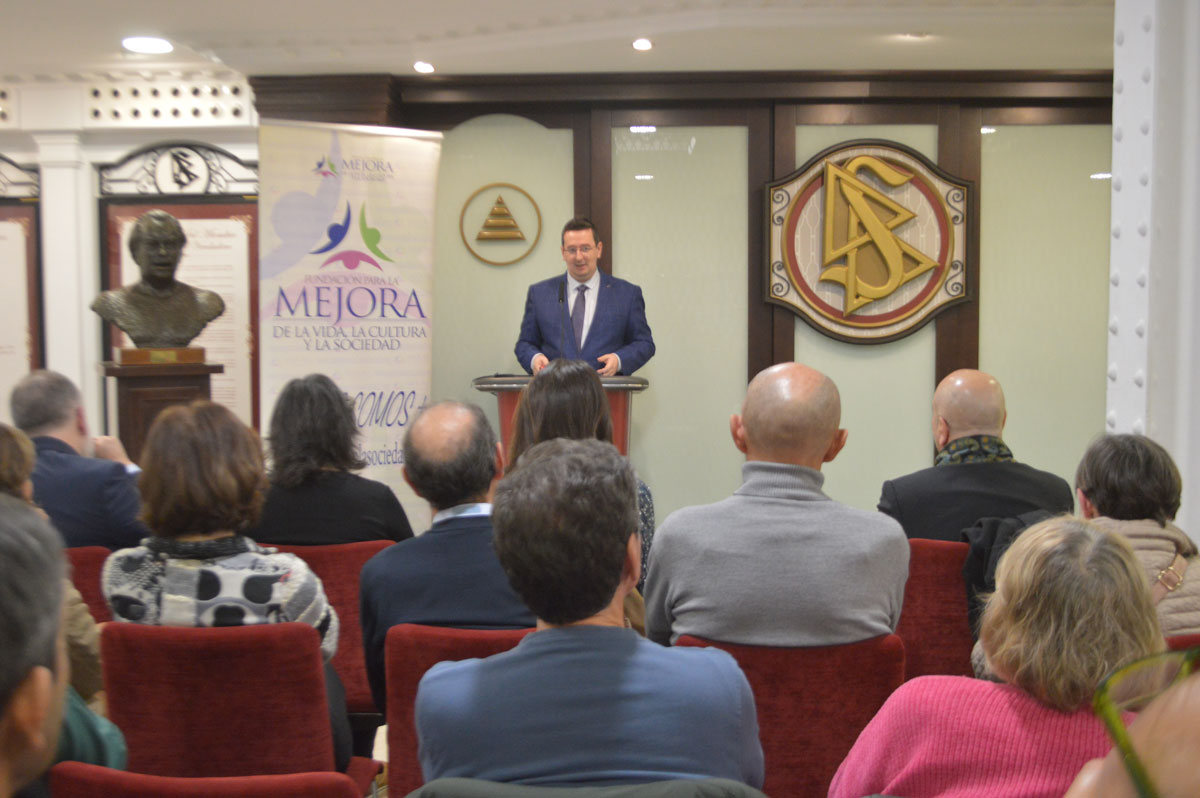December 15, 2023, witnessed the tenth edition of the Religious Freedom Awards, which are given annually by the Foundation for the Improvement of Life, Culture and Society (Fundacion MEJORA), linked to the Church of Scientology, and recognised with Special Consultative Status by the Economic and Social Council of the United Nations since 2019.
The event, held at the headquarters of this religious denomination located in a refurbished historic building, brought together authorities, academics and representatives of civil society to recognise the work of three leading experts in the defence of this fundamental right protected not only by the Spanish Constitution but also by the European Convention on Human Rights and the Universal Declaration of Human Rights, which celebrates 75 years since its signing.
Among the diplomats, present were the Embassy of Bosnia Herzegovina and the one of the Czech Republic who expressed the support of their people for the fundamental right of freedom of religion or belief.
The Secretary General of the Foundation MEJORA, Isabel Ayuso Puente, welcomed the attendees, highlighting the growing importance of interreligious dialogue and the recognition of the positive contribution of religions to society: “Interreligious dialogue is becoming increasingly important and necessary and that religion in some way forms an important part of society“, a message that she supported with a video based on The Way to Happiness, the non-religious moral code written by Ronald Hubbard, founder of Scientology.
On behalf of the Ministry of the Presidency, the Deputy Director General for Religious Freedom, Mercedes Murillo, sent a message in which she congratulated the award winners – Igor Minteguía, Francisca Pérez and Mónica Cornejo – for their “outstanding contribution to the study, analysis and understanding of the legal and social aspects of religious freedom”. Murillo stressed “the need to continue working towards the creation of conditions that allow for a fuller exercise of religious freedom in the context of increasingly open and plural societies“.
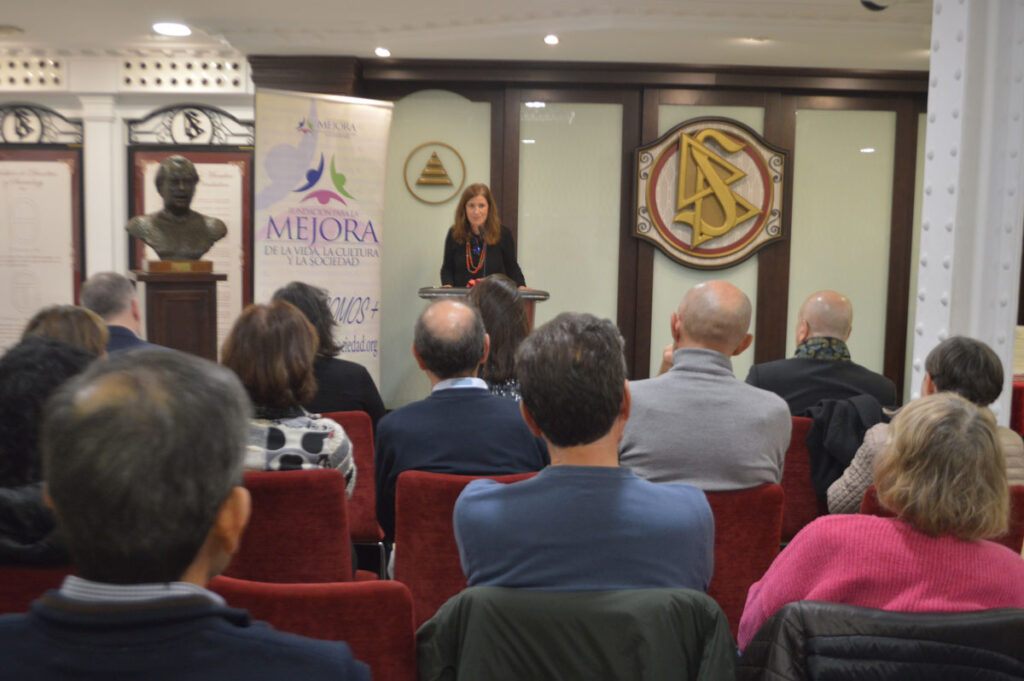
Before giving way to the award winners, the director of the Pluralism and Coexistence Foundation, Inés Mazarrasa, highlighted the support of this public institution for the publication of a book “10 Años de promoción y defensa de la Libertad Religiosa” that will compile the articles of the 30 award winners in this decade, thanks to funding from the foundation she leads. She explained that the work of the Foundation seeks to disseminate “the defence of religious freedom” and the “recognition of religious diversity”. In her opinion, “actively defending rights” such as religious freedom is necessary to “preserve them” in the face of the “risk” of “regression”.
Afterwards, the president of the Foundation MEJORA, Iván Arjona, who also represents Scientology to the European Union, OSCE and United Nations institutions, presented the publication project, explaining that the work will be available in both physical and digital formats, to make known different perspectives on freedom of belief in different areas of life and that several debates will be held with university students to once again put on the table “the need to increase awareness of this fundamental right to be able to believe and practice the religion that brings out the best version of yourself“.
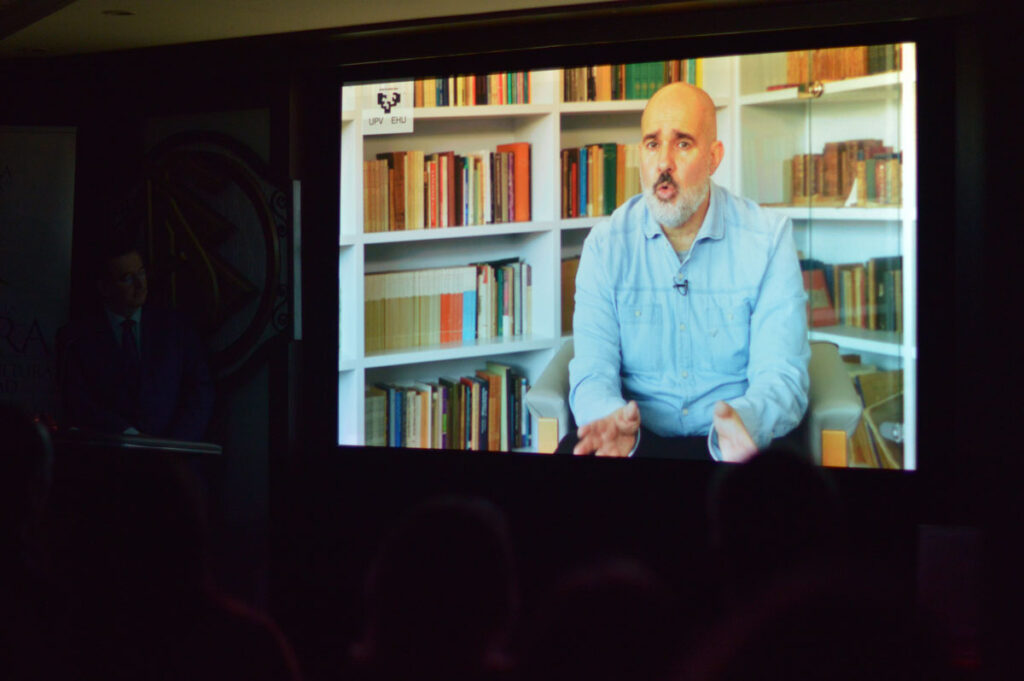
The first of the 2023 award winners to take the floor was Professor Igor Minteguía, who has been teaching State Ecclesiastical Law for 25 years. This expert from the University of the Basque Country thanked the award for his contribution to the “defence of freedom of conscience as a fundamental element underpinning coexistence in an increasingly plural and complex society“.
Throughout his career, Minteguía has published numerous works on the protection of minorities and freedom of conscience. His lines of research include the study of the limits between artistic freedom and religious feelings. In his speech, the prize-winner stressed that the message he has always conveyed to his students has been “the defence of freedom and of those who are different, even if they do not share or even reject his vision of reality“.
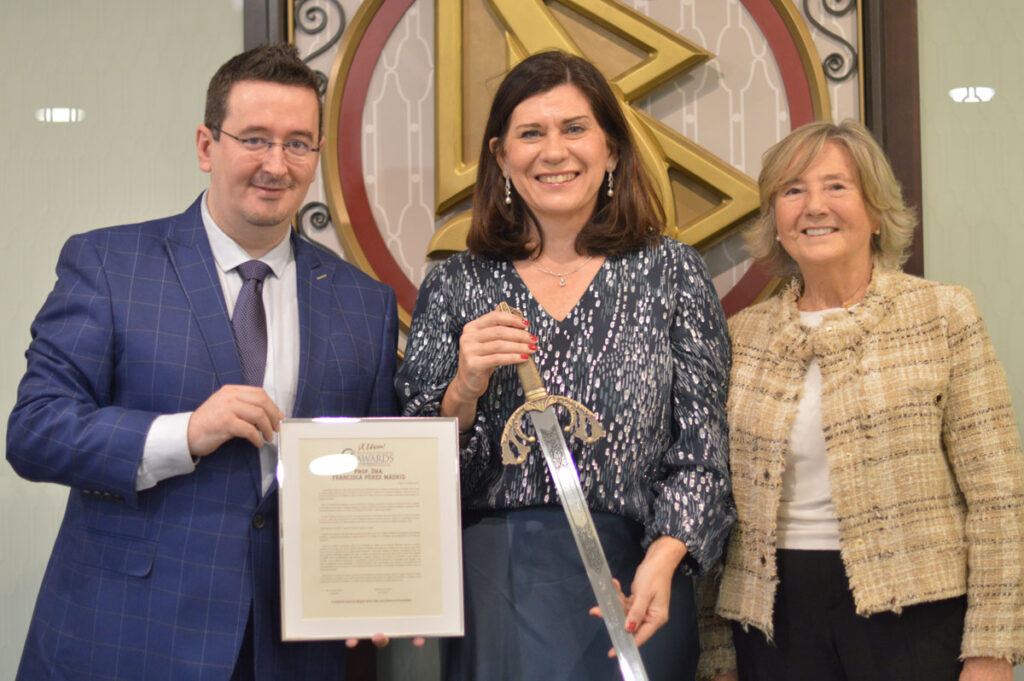
After this heartfelt speech, it was the turn of the next awardee, Professor Francisca Pérez Madrid, from the University of Barcelona, who focused a large part of her speech on listing serious situations of religious persecution in countries such as China, India, Pakistan and Nigeria.
She stated that “when discrimination is ignored, we should not be surprised that it turns into persecution“. She considered the response of international organisations and democratic governments to be “lukewarm” and called for a review of the criteria for granting asylum in cases of religious persecution.
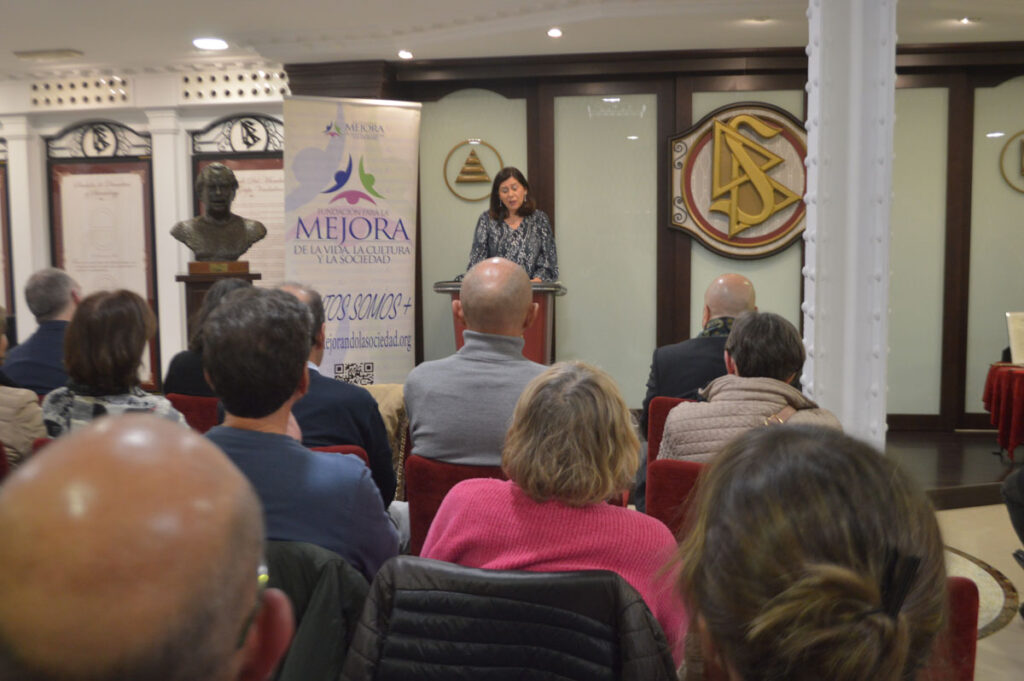
Pérez, who has also been focusing on this fundamental right for more than a quarter of a century, also mentioned what she called “political persecution”, when some governments consider it necessary to limit religion to achieve, according to them, social welfare.
She warned of laws that “silence the voice of dissent” in the face of official doctrines that affect religious choices, referring to freedom of expression “threatened by a culture of cancellation“.
However, she said that the growing interest in inter-religious dialogue and the awarding of the European Parliament’s Sakharov prize to the struggle of women in Iran after the death of Mahsa Amini were positive aspects, which she said showed that there was a point of no return in the defence of religious freedom.
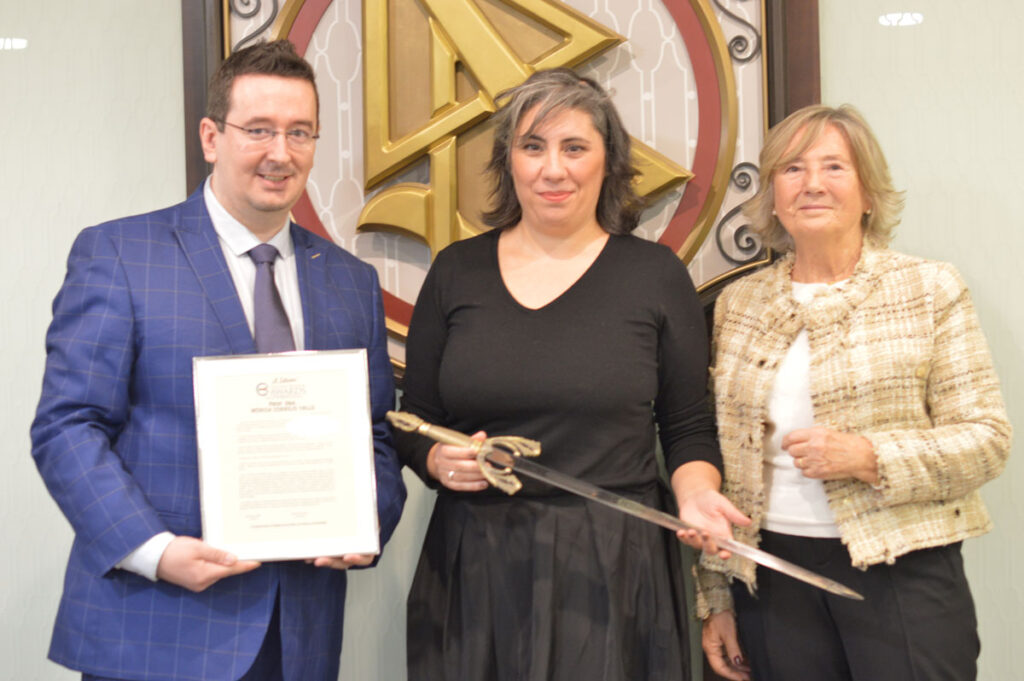
To close the awards ceremony, it was the turn of the last awardee of the night, anthropologist and professor at the Complutense University of Madrid, Mónica Cornejo Valle, who explained how the study of popular religiosity in Spain allowed her to see that “religious beliefs and practices were a little mistreated”, which led her to take an interest in religious diversity. Cornejo defends anthropology’s “respect for diversity” to improve society, “de-dramatising” these differences.
“Embracing diversity means listening, listening with attention, listening with compassion too. And sometimes when we are listening, we hear things that are not to our liking and this is going to happen and will continue to happen,” she acknowledged.
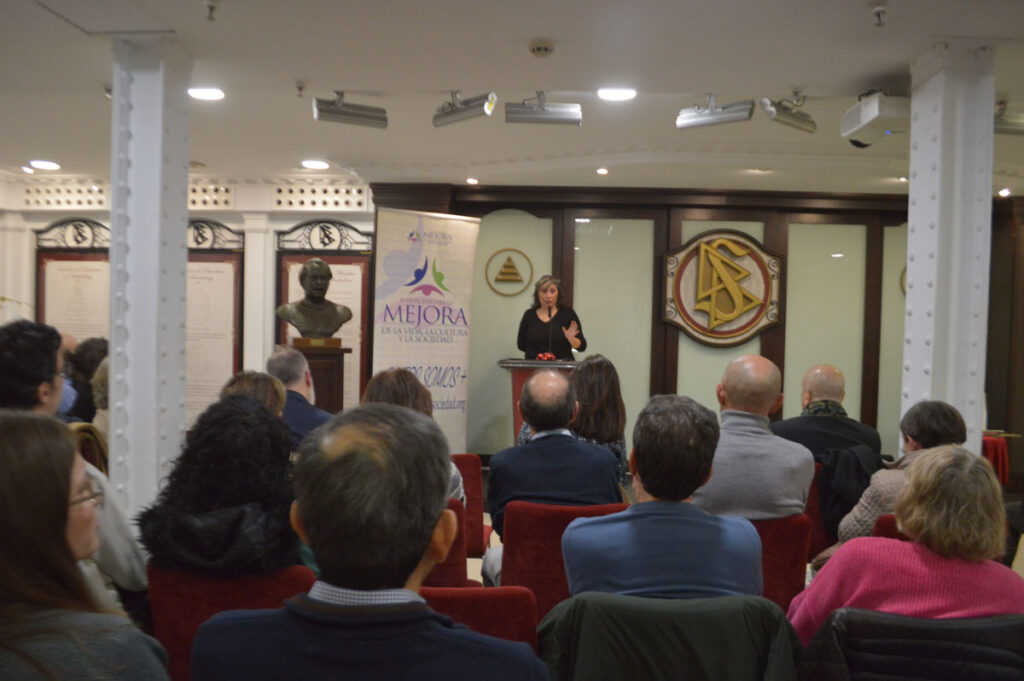
Cornejo also criticised the use of the term “sect” in the media and even sometimes in the courts to refer to religious minorities, which in his opinion responds to “fear of what is different” and reflects “a lack of respect for religious freedom and diversity“. She considers it necessary to transform the culture in order to move towards “real tolerance and real respect” that allows coexistence.
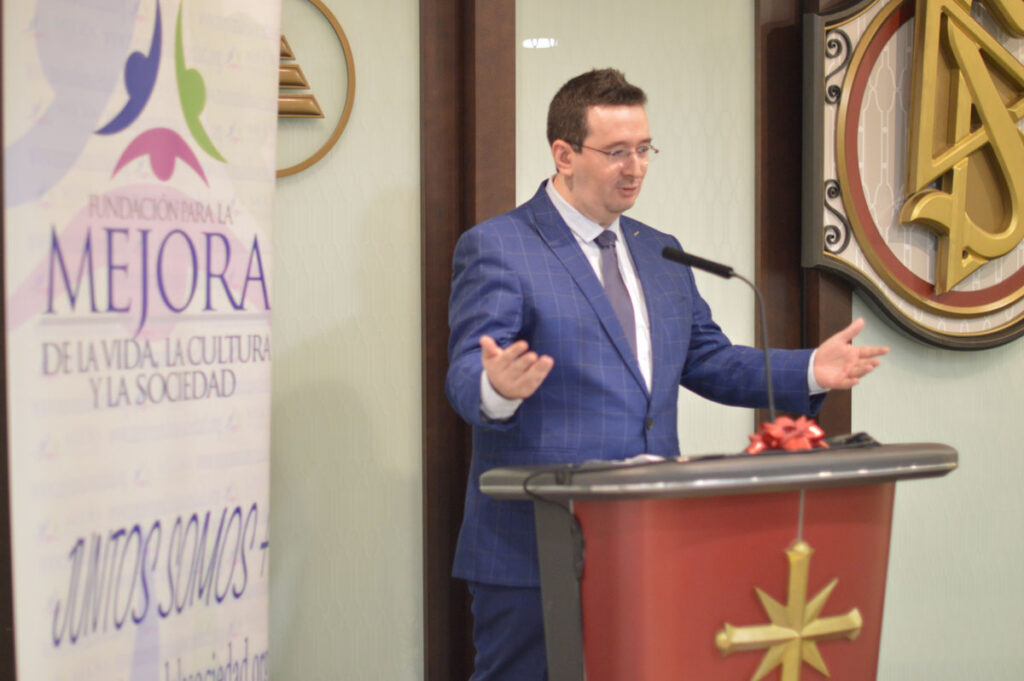
Arjona encouraged in his closing remarks that
“religion or belief is not just something you have, it is not something you do, in the end, it is something you are. So no one has the right to trample on, to undermine, to belittle what you are, because you are a spiritual being. You are a soul… it is the essence of each and every one of us. It is us … and I invite you in your daily life, in your work, whether you are dedicated to the diversity of beliefs or not, to law, housewives, plumbers, teachers, lawyers, activists, diplomats, to keep in mind that great need of the human being to be free and happy with what he is“.
source link eu news


